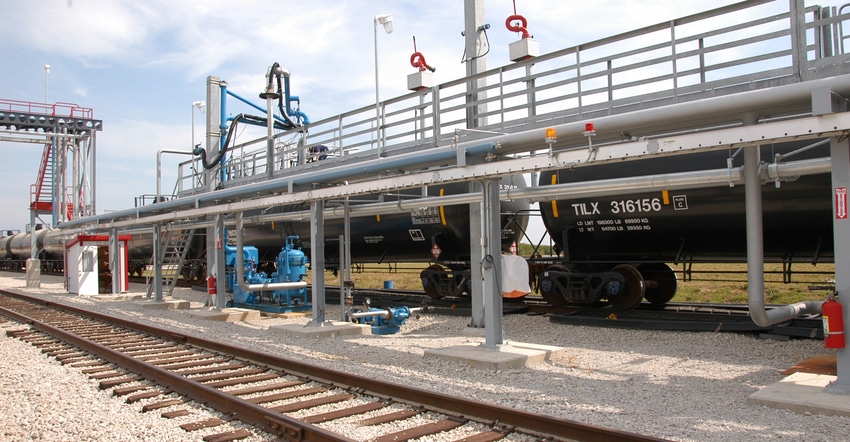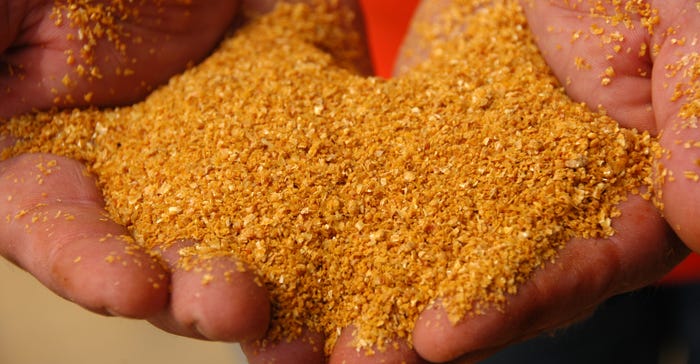
These are tough days in the energy business.
“We’re running at about 65% capacity, and the driver behind that is we’re not seeing the usual demand for gasoline and the ethanol that gets blended with it,” says Jim Leiting, chief operating officer of Big River Resources, referring to production cuts at Big River’s farmer-owned ethanol refineries near the Mississippi River.
Total U.S. gasoline demand is off about 45% from pre-coronavirus pandemic levels. That means ethanol use is also off by 45%.
Both energy industries have followed through on production cuts, with U.S. crude oil refiners cutting 33% of their operating capacity. Ethanol has followed suit with a cut of roughly 50%, a number held down in part due to the still-steady demand for diesel fuel for hauling freight amid the COVID-19 shutdown.
“We’re just doing our part to reduce the oversupply,” says Terry Davis, Big River board member. “We’re continuing, as best we can under current market conditions, so that we can continue to supply dried distillers grain for livestock feed.”
Before the coronavirus prompted a worldwide shutdown, ethanol refiners in the U.S. were grinding 7.4 million barrels per week. At the end of April, that number was 3.9 million barrels per week.
Related: Complete coronavirus coverage
Look for more production cuts in the future, says University of Illinois agricultural economist Scott Irwin, since storage for biofuel was maxed out as refiners were bringing down their production capacity in March and early April.
“Ethanol stocks are very high, so there may be more ethanol production cuts coming,” Irwin says. “I expect a little further softness in ethanol production levels, but not much more. Ethanol production right now is lined up pretty well with reduced demand.”
Pre-COVID-19 biofuel demand
Before COVID-19 hit, biofuels were achieving underappreciated growth in the “marginal” blending that happens above the up to 10% blending rate for most fuel in America.
Irwin says this was likely because of more drivers in California using advanced biofuel due to the low carbon fuel standard. He speculates the ethanol was used in E85 blends and came through a 100 million gallons of sugarcane ethanol from Brazil.
“It shows, despite the complaints from the ethanol industry, there’s really no evidence that ethanol use decreased because of SREs, or small refiner exemptions,” Irwin says, referring to the U.S. Environmental Protection Agency granting 31 oil refiners waivers from U.S. biofuel laws in August last year.
“The argument has moved on to the turf of: Was growth of higher blends held back by SREs? And I think the answer to that is, undoubtedly, yes. The question then is, how much? The ethanol industry says a lot. I would say, probably not that much,” Irwin adds.
While ethanol exports were down in 2019 compared to 2018, they were still at historically “very high levels,” Irwin says. The onset of COVID-19 shutdowns across the world changed that.
“Pre-COVID, biofuels weren’t in a great position, but not a disaster either,” Irwin says, concluding production cuts in response to SREs were “not even close” to the massive production cuts the biofuel industry has implemented during the shutdown.
Large refiners lobby for waivers
It’s not just small refiners who are asking for waivers from U.S. biofuel laws. Following the drop in demand for oil from COVID-19 and an accompanying oil price war involving Saudi Arabia and Russia, five governors of oil-producing states asked the EPA to wave 2020 blending requirements as well.
“We’re entering the mother of all political battles over the RFS [Renewable Fuel Standard] right now, in my opinion,” Irwin says of the building tension between the ethanol and oil industries.

DDG: Dried distillers grain is still being produced by ethanol refineries at a reduced rate during the COVID-19 shutdown.

In a normal year, ethanol consumes 5.5 billion bushels of corn. Irwin expects much less will be consumed in 2020. With the feed industry losing $50 to $60 a head on finished hogs, U.S. corn’s next biggest market, at 5 billion bushels, isn’t doing too well either.
“If we start losing ethanol demand, the impact on the Midwest would be severe,” Leiting says. “We could see corn in the $3s, might even see a $2 handle on it, which is well below the cost of production. My concern mostly is for the Midwest economy as a whole. If a farmer can make some money, he spends it. He goes out in his community and buys green paint, trucks, and it all filters back in the economy. Without that, we have trouble.”
While Big River has no debt and is financially sound, the same can’t be said for other ethanol producers that were struggling even before COVID-19 hit. That’s why Leiting says the ethanol industry should be considered for aid. He’s applied for small business loan relief through the Coronavirus Aid, Relief and Economic Security Act passed by Congress to help pay wages while earning negative margins.
While USDA recently offered aid to farmers in the Coronavirus Food Assistance Program, biofuel producers couldn’t access the program. That’s business as usual, says Irwin, as ethanol is an industry that historically hasn’t received government assistance other than through the provisions of the farm bill.
“If there’s additional appropriations going into the ag sector to provide direct income support, I think it’ll be gobbled up by the crop sector. And livestock, too. They’re a higher priority than biofuel producers,” Irwin says. “The political dynamics about supporting or not supporting the biofuels industry is going to focus on this waiver request made by the five oil state governors.”
Read more about:
Covid 19About the Author(s)
You May Also Like




